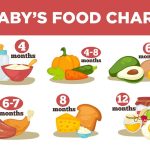“Childhood eating behaviour contributes to the rise of obesity and related noncommunicable disease worldwide. Persistent obesity throughout childhood is associated with cardiometabolic disease, type 2 diabetes, and cancer, all representing chronic health conditions that severely reduce quality of life and are associated with poor mental health.”
Hübel and colleagues, Scientific Reports
Overeating in kids is a severe problem that has negative effects on their general health and well-being. Overeating in children is caused by a complex interplay of psychological and emotional elements, needing a better knowledge of the underlying reasons. It is imperative that we unravel this mystery and take proactive measures to prevent the effects of overeating, helping children cultivate a healthier relationship with food. In this blog, we will delve into the reasons behind the effects of toddler overeating and discuss effective strategies for prevention. Additionally, we will shed light on the harmful effects of overeating, while emphasising the importance of fostering mindful eating practices that can positively transform children’s lives.
Unlocking 3 key Psychological Reasons for Toddler Overeating
- Children, like adults, can experience a range of psychological reasons that contribute to overeating. These might consist of: a) Stress and Anxiety: Just like adults, kids may use food as a coping method for stress and anxiety. Stressors such as academic pressures, social challenges, or family issues can trigger emotional eating habits.
- Boredom and Entertainment: Children may overeat out of boredom or for entertainment purposes. Toddler overeating can result from mindless snacking while performing sedentary activities like watching TV or playing video games.
- Reward and Comfort: Some children associate food with rewards and seek comfort through eating. Using food as a reward system or offering it as a means of consolation can reinforce emotional connections to eating.
Now that we have looked at the psychological reasons for overeating, let us look at the emotional reasons for overeating in kids.
Exploring 3 Main Emotional Drivers for Overeating in Kids
In addition to psychological factors, emotional triggers can significantly contribute to overeating in children. Some common emotional reasons include:
- Loneliness and Lack of Connection
- Low Self-Esteem
- Depression and Mood Disorders
Children who feel lonely or isolated may turn to food for solace. Emotional eating can temporarily fill the void and provide a sense of comfort.
Little ones with poor self-esteem may turn to eating as a coping mechanism. They tend to think that it would improve their mood or sense of worth. This emotional link may set off a vicious cycle of overeating and low self-esteem.
Emotional imbalances, such as depression or mood disorders, can influence children to overeat as a way to regulate their emotions or find momentary relief.
Investigating the 7 Key Strategies to Prevent Overeating
Did you ever wonder how to control overeating in kids?
Preventing overeating in children requires a holistic approach that addresses both psychological and emotional factors. The following strategies can be employed:
- Promote Mindful Eating
- Establish a Structured Mealtime Routine
- Encourage Healthy Food Choices
- Foster Emotional Well-being
- Avoid Using Food as a Reward or Punishment
- Lead by Example
- Limit Access to Unhealthy Foods
Encourage children to pay attention to their hunger cues, eat slowly, and savour their food. Mindful eating helps children become more aware of their body’s signals, leading to better portion control and decreased overeating effects.
Set regular meal and snack times to provide structure and consistency. A predictable routine helps regulate appetite and reduces the likelihood of impulsive eating episodes.
Make nutritious foods readily available and appealing to children. Involve them in meal planning and preparation, allowing them to develop a sense of ownership and interest in healthier options.
Address emotional triggers by fostering open communication, providing a supportive environment, and teaching alternative coping mechanisms for stress and anxiety. Encourage physical activities, creative outlets, or hobbies as healthy outlets for emotional expression.
Instead of using food as a reward, acknowledge children’s achievements with non-food incentives like extra playtime or special outings. Similarly, avoid using food as punishment or deprivation, as it can lead to an unhealthy relationship with eating.
Children learn by observing and imitating their parents and caregivers. Model healthy eating habits, mindful eating practices, and a positive body image. Avoid restrictive dieting or making negative comments about food or appearance.
Create an environment that supports healthy eating by minimising the availability of highly processed, sugary snacks and drinks. Do you know what to do? Ensure that your refrigerator and kitchen are stocked with good foods like fruits, vegetables, and whole grains. Just replace the unhealthy options:)
Why is Overeating Harmful? Discovering 4 Main Overeating Consequences
Did you know the side effects of overeating in children?
Overeating in children poses considerable hazards and has a negative impact on both physical and mental health. Key reasons why overeating is harmful include:
- Obesity and Related Health Issues
- Poor Nutritional Intake
- Disrupted Hunger and Fullness Cues
- Emotional and Psychological Impact
Overeating regularly and consuming excessive calories can lead to weight gain and childhood obesity. This increases the risk of chronic health conditions.
Indulging in an abundance of high-calorie but low-nutrient foods indicates a pattern of frequent overeating. Consequently, vital vitamins, minerals, and essential nutrients necessary for optimal growth and development may become depleted. Insufficient intake of vital nutrients can hinder cognitive function, weaken the immune system, and impair overall physical health.
Overeating can disrupt children’s ability to recognize their body’s hunger and fullness cues. Constantly consuming excessive amounts of food can lead to a distorted perception of satiety, making it challenging to gauge genuine hunger or comfortable satisfaction. This disconnection contributes to a cycle of overeating and weight gain.
Overeating can have profound emotional and psychological consequences for children. Little children grappling with body image issues may encounter emotions characterised by guilt, embarrassment, and diminished self-worth. Using overeating as a coping mechanism for stress or emotional distress reinforces unhealthy associations with food and hampers the development of effective emotional regulation skills.
Conclusion
To prevent childhood overeating, a comprehensive approach that considers the effects of overeating psychological, emotional, and physical factors is essential. For example, implementing strategies like promoting mindful eating, such as encouraging children to pay attention to their hunger and fullness cues, can help develop a balanced relationship with food. Establishing structured routines, like having regular meal times and avoiding erratic eating patterns, provides stability and regulates appetite. Fostering emotional well-being by teaching healthy ways to handle emotions reduces the reliance on food as a coping mechanism. By providing positive role models who demonstrate responsible portion control and diverse food choices, children are more likely to adopt healthier eating habits.
It is especially important to remember that binge eating can be harmful to your little one’s emotional health as well as their immediate and long-term physical health. Prioritising preventive measures and cultivating mindful eating habits guide children toward a lifetime of well-being, a healthy mindset and avoid overeating consequences. Does your child overeat? What strategies do you use? Please share your valuable thoughts with us.
At EuroKids, we understand the importance of a healthy diet and the holistic development of children. To learn more about us and our specially crafted curriculum, visit our website now!
Reference
https://www.parentcircle.com/tips-to-avoid-overfeeding-child/article
https://www.ncbi.nlm.nih.gov/pmc/articles/PMC7833366/
https://www.nature.com/articles/s41598-021-90644-2
For informative and accurate articles on all things related to your new born-toddler’s development, growth, health and nutrition, follow EuroKids Blogs and do check out our nationally recognized preschools – EuroKids for the first step in your kid’s educational journey!
















